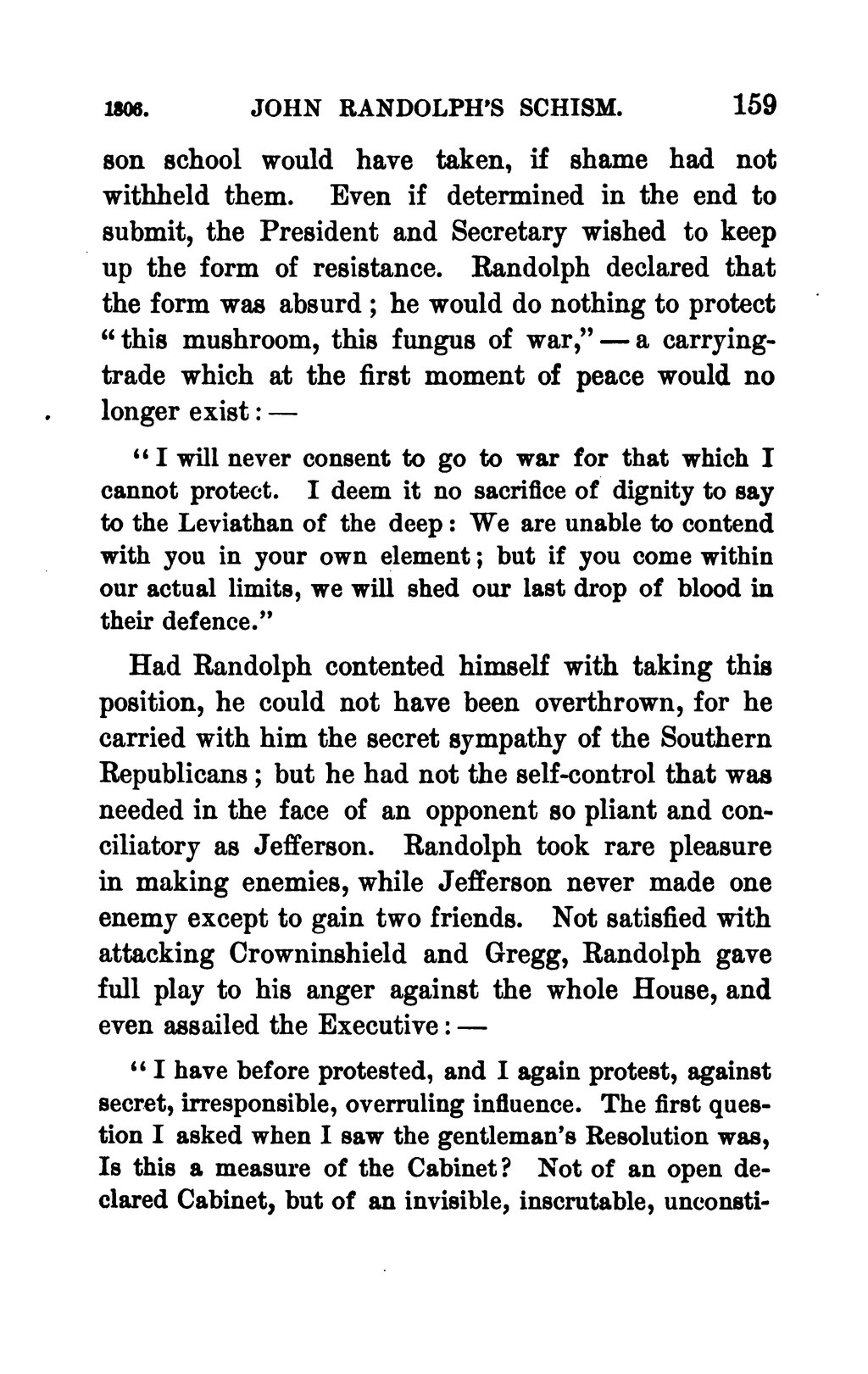school would have taken, if shame had not withheld them. Even if determined in the end to submit, the President and Secretary wished to keep up the form of resistance. Randolph declared that the form was absurd; he would do nothing to protect "this mushroom, this fungus of war,"—a carrying-trade which at the first moment of peace would no longer exist:—
- "I will never consent to go to war for that which I cannot protect. I deem it no sacrifice of dignity to say to the Leviathan of the deep: We are unable to contend with you in your own element; but if you come within our actual limits, we will shed our last drop of blood in their defence."
Had Randolph contented himself with taking this position, he could not have been overthrown, for he carried with him the secret sympathy of the Southern Republicans; but he had not the self-control that was needed in the face of an opponent so pliant and conciliatory as Jefferson. Randolph took rare pleasure in making enemies, while Jefferson never made one enemy except to gain two friends. Not satisfied with attacking Crowninshield and Gregg, Randolph gave full play to his anger against the whole House, and even assailed the Executive:—
- "I have before protested, and I again protest, against secret, irresponsible, overruling influence. The first question I asked when I saw the gentleman's Resolution was, Is this a measure of the Cabinet? Not of an open declared Cabinet, but of an invisible, inscrutable, unconstitutional
